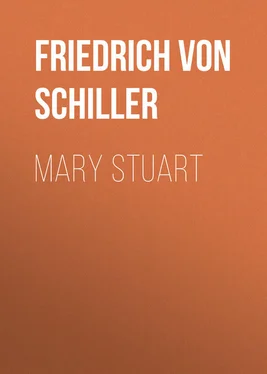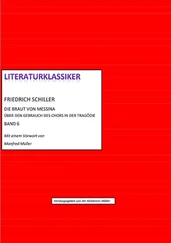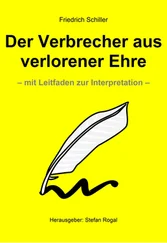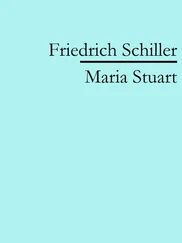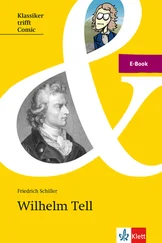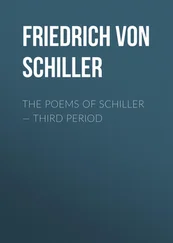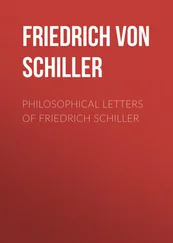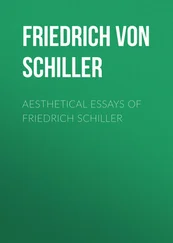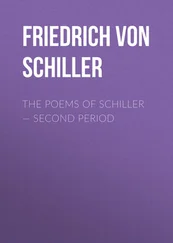Friedrich Schiller - Mary Stuart
Здесь есть возможность читать онлайн «Friedrich Schiller - Mary Stuart» — ознакомительный отрывок электронной книги совершенно бесплатно, а после прочтения отрывка купить полную версию. В некоторых случаях можно слушать аудио, скачать через торрент в формате fb2 и присутствует краткое содержание. Жанр: literature_18, Драматургия, foreign_antique, foreign_prose, foreign_dramaturgy, на английском языке. Описание произведения, (предисловие) а так же отзывы посетителей доступны на портале библиотеки ЛибКат.
- Название:Mary Stuart
- Автор:
- Жанр:
- Год:неизвестен
- ISBN:нет данных
- Рейтинг книги:5 / 5. Голосов: 1
-
Избранное:Добавить в избранное
- Отзывы:
-
Ваша оценка:
- 100
- 1
- 2
- 3
- 4
- 5
Mary Stuart: краткое содержание, описание и аннотация
Предлагаем к чтению аннотацию, описание, краткое содержание или предисловие (зависит от того, что написал сам автор книги «Mary Stuart»). Если вы не нашли необходимую информацию о книге — напишите в комментариях, мы постараемся отыскать её.
Mary Stuart — читать онлайн ознакомительный отрывок
Ниже представлен текст книги, разбитый по страницам. Система сохранения места последней прочитанной страницы, позволяет с удобством читать онлайн бесплатно книгу «Mary Stuart», без необходимости каждый раз заново искать на чём Вы остановились. Поставьте закладку, и сможете в любой момент перейти на страницу, на которой закончили чтение.
Интервал:
Закладка:
Conclude – nay, pause not – say for this
I gave my hand in marriage at the altar.
O let an everlasting silence veil
That dreadful deed: the heart revolts at it.
A crime to stain the darkest criminal!
Yet you are no such lost one, that I know.
I nursed your youth myself – your heart is framed
For tender softness: 'tis alive to shame,
And all your fault is thoughtless levity.
Yes, I repeat it, there are evil spirits,
Who sudden fix in man's unguarded breast
Their fatal residence, and there delight
To act their dev'lish deeds; then hurry back
Unto their native hell, and leave behind
Remorse and horror in the poisoned bosom.
Since this misdeed, which blackens thus your life,
You have done nothing ill; your conduct has
Been pure; myself can witness your amendment.
Take courage, then; with your own heart make peace.
Whatever cause you have for penitence,
You are not guilty here. Nor England's queen,
Nor England's parliament can be your judge.
Here might oppresses you: you may present
Yourself before this self-created court
With all the fortitude of innocence.
I hear a step.
It is the nephew – In.
SCENE V
The same. Enter MORTIMER, approaching cautiously.
Step to the door, and keep a careful watch,
I have important business with the queen.
I charge thee, Hannah, go not hence – remain.
Fear not, my gracious lady – learn to know me.
[He gives her a card.
Heavens! What is this?
Retire, good Kennedy;
See that my uncle comes not unawares.
Go in; do as he bids you.
[KENNEDY retires with signs of wonder.
SCENE VI
MARY, MORTIMER.
From my uncle
In France – the worthy Cardinal of Lorrain?
[She reads.
"Confide in Mortimer, who brings you this;
You have no truer, firmer friend in England."
[Looking at him with astonishment.
Can I believe it? Is there no delusion
To cheat my senses? Do I find a friend
So near, when I conceived myself abandoned
By the whole world? And find that friend in you,
The nephew of my gaoler, whom I thought
My most inveterate enemy?
Oh, pardon,
My gracious liege, for the detested mask,
Which it has cost me pain enough to wear;
Yet through such means alone have I the power
To see you, and to bring you help and rescue.
Arise, sir; you astonish me; I cannot
So suddenly emerge from the abyss
Of wretchedness to hope: let me conceive
This happiness, that I may credit it.
Our time is brief: each moment I expect
My uncle, whom a hated man attends;
Hear, then, before his terrible commission
Surprises you, how heaven prepares your rescue.
You come in token of its wondrous power.
Allow me of myself to speak.
Say on.
I scarce, my liege, had numbered twenty years,
Trained in the path of strictest discipline
And nursed in deadliest hate to papacy,
When led by irresistible desire
For foreign travel, I resolved to leave
My country and its puritanic faith
Far, far behind me: soon with rapid speed
I flew through France, and bent my eager course
On to the plains of far-famed Italy.
'Twas then the time of the great jubilee:
And crowds of palmers filled the public roads;
Each image was adorned with garlands; 'twas
As if all human-kind were wandering forth
In pilgrimage towards the heavenly kingdom.
The tide of the believing multitude
Bore me too onward, with resistless force,
Into the streets of Rome. What was my wonder,
As the magnificence of stately columns
Rushed on my sight! the vast triumphal arches,
The Colosseum's grandeur, with amazement
Struck my admiring senses; the sublime
Creative spirit held my soul a prisoner
In the fair world of wonders it had framed.
I ne'er had felt the power of art till now.
The church that reared me hates the charms of sense;
It tolerates no image, it adores
But the unseen, the incorporeal word.
What were my feelings, then, as I approached
The threshold of the churches, and within,
Heard heavenly music floating in the air:
While from the walls and high-wrought roofs there streamed
Crowds of celestial forms in endless train —
When the Most High, Most Glorious pervaded
My captivated sense in real presence!
And when I saw the great and godlike visions,
The Salutation, the Nativity,
The Holy Mother, and the Trinity's
Descent, the luminous transfiguration
And last the holy pontiff, clad in all
The glory of his office, bless the people!
Oh! what is all the pomp of gold and jewels
With which the kings of earth adorn themselves!
He is alone surrounded by the Godhead;
His mansion is in truth an heavenly kingdom,
For not of earthly moulding are these forms!
O spare me, sir! No further. Spread no more
Life's verdant carpet out before my eyes,
Remember I am wretched, and a prisoner.
I was a prisoner, too, my queen; but swift
My prison-gates flew open, when at once
My spirit felt its liberty, and hailed
The smiling dawn of life. I learned to burst
Each narrow prejudice of education,
To crown my brow with never-fading wreaths,
And mix my joy with the rejoicing crowd.
Full many noble Scots, who saw my zeal,
Encouraged me, and with the gallant French
They kindly led me to your princely uncle,
The Cardinal of Guise. Oh, what a man!
How firm, how clear, how manly, and how great!
Born to control the human mind at will!
The very model of a royal priest;
A ruler of the church without an equal!
You've seen him then, – the much loved, honored man,
Who was the guardian of my tender years!
Oh, speak of him! Does he remember me?
Does fortune favor him? And prospers still
His life? And does he still majestic stand,
A very rock and pillar of the church?
The holy man descended from his height,
And deigned to teach me the important creed
Of the true church, and dissipate my doubts.
He showed me how the glimmering light of reason
Serves but to lead us to eternal error:
That what the heart is called on to believe
The eye must see: that he who rules the church
Must needs be visible; and that the spirit
Of truth inspired the councils of the fathers.
How vanished then the fond imaginings
And weak conceptions of my childish soul
Before his conquering judgment, and the soft
Persuasion of his tongue! So I returned
Back to the bosom of the holy church,
And at his feet abjured my heresies.
Интервал:
Закладка:
Похожие книги на «Mary Stuart»
Представляем Вашему вниманию похожие книги на «Mary Stuart» списком для выбора. Мы отобрали схожую по названию и смыслу литературу в надежде предоставить читателям больше вариантов отыскать новые, интересные, ещё непрочитанные произведения.
Обсуждение, отзывы о книге «Mary Stuart» и просто собственные мнения читателей. Оставьте ваши комментарии, напишите, что Вы думаете о произведении, его смысле или главных героях. Укажите что конкретно понравилось, а что нет, и почему Вы так считаете.
